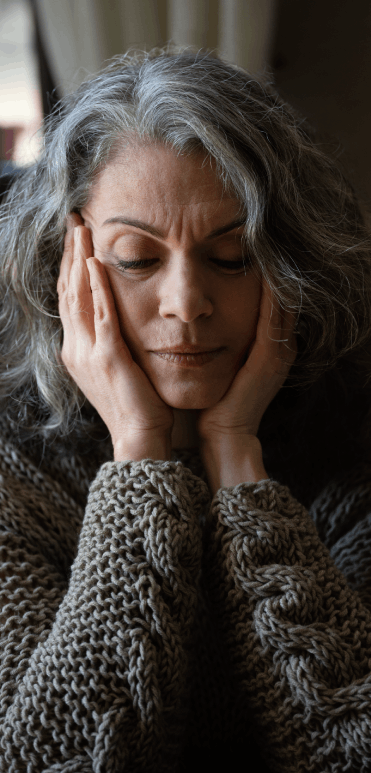PARKINSON’S DISEASE TREATMENT IN AYURVEDA
The Parkinson’s disease (PD), or simply Parkinson’s, is a long-term degenerative disorder of the central nervous system that mainly affects the motor system. As the disease worsens, non-motor symptoms become more common. The symptoms usually emerge slowly. Sanjeevanam Ayurveda hospital is one of the best ayurveda centres providing authentic ayurvedic treatment for Parkinson disease in Kerala.

SIGNS & SYMPTOMS OF PARKINSON’S DISEASE
- Tremors
- Bradykinesia
- Muscle Rigidity
- Postural Instability
- Changes in Handwriting (Micrographia)
- Reduced Facial Expression (“Masked Face”)
STAGES OF PARKINSON’S DISEASE
Parkinson’s disease is a chronic and progressive brain disorder that primarily leads to uncontrolled, unintended movements and difficulty in balance and coordination. It can lead to anxiety, depression and dementia, with increasing inability to complete daily living tasks independently. The disease worsens gradually over time and can be divided into 5 stages, based on symptoms:
Stage I
Symptoms are very mild and may include tremors, stiffness or slower movements and are usually limited to one side of the body.
Stage II
The same above symptoms persist, but are more prominent and affect both sides of the body, with balance being affected.
Stage III
Symptoms are more severe and noticeable. Daily activities become challenging and there is impaired balance with greater chances of falling.
Stage IV
Movement speeds decrease substantially and living assistance may be required.
Stage V
Patient is usually bed-ridden at this stage and experiences hallucinations, delusions and cognitive decline.

CAUSES OF PARKINSON’S DISEASE
Here are some key factors associated with the development of Parkinson’s disease:
- Genetic Factors:
There is evidence to suggest that certain genetic mutations and variations may increase the risk of Parkinson’s disease. However, most cases of Parkinson’s are not directly inherited.
- Age:
Advancing age is a significant risk factor for Parkinson’s disease. The majority of individuals with Parkinson’s are diagnosed after the age of 60.
- Environmental Factors:
Exposure to certain environmental factors, such as pesticides, herbicides, and other toxins, may increase the risk of Parkinson’s disease. However, the link between specific environmental factors and Parkinson’s is still being studied.
- Gender:
Men are more likely to develop Parkinson’s disease than women.
- Head Trauma:
A history of head injuries, especially repeated or severe traumas, has been suggested as a potential risk factor.
- Certain Medications:
Some medications, particularly certain antipsychotic drugs, have been associated with an increased risk of Parkinson’s disease.
- Lewy Bodies:
The presence of abnormal protein deposits called Lewy bodies in the brain is a hallmark of Parkinson’s disease. The exact role of Lewy bodies in the development of Parkinson’s is still under investigation.

AYURVEDIC TREATMENT FOR PARKINSON’S DISEASE
- Snehanam
- Swedanam
- Virechanam
- Nasyam
- Vasti Chikitsa
FREQUENTLY ASKED
QUESTIONS
What is the best Ayurvedic treatment for Parkinson disease?
Parkinson’s is known as ‘Kampavata’ in ayurveda and can be effectively treated using various ayurvedic formulations. A combination of Ashwagandha and Mucuna Pruriens when taken in combination with milk for a few weeks, can have a positive effect on patients with Parkinson’s disease. Brahmi and Jatamansi can also be added to the treatment regimen to control the secondary symptoms of depression.
Is Ashwagandha used for Parkinson disease treatment?
Ayurveda offers definitive treatment of Parkinson’s disease and helps in slowing down deterioration of symptoms too. Ashwagandha is known to successfully reverse some types of nerve cell damage as well. This herb has been used for centuries in ayurveda and is useful in the treatment of tremors. It also has a soothing effect and can successfully suppress stress-induced dopamine receptors.
What are the chances of getting Parkinson's disease if a parent has it?
There are some school of thoughts that believe children of parents with Parkinson’s, have a 50% chance of developing it. However, only about 5% of cases are due to inherited gene abnormalities and its very rare to see Parkinson’s disease running in families. Majority of Parkinson’s disease cases are of ‘idiopathic’ origin, with no known causes for their development.
Can Parkinson's disease cause seizures?
Parkinson’s disease is a neurodegenerative condition of the central nervous system that results in uncontrolled movements. Along with involuntary shaking, stiff, inflexible muscles and difficulty with balance and coordination, some people with Parkinson’s disease can also experience epileptic seizures. These are caused by uncontrollable electrical disturbances in the brain and can be very severe in some patients, while non-existent in others.
Is there a link between Parkinson's disease and epilepsy?
Parkinson’s disease affects the central nervous system of the body, resulting in loss of balance, which can further lead to falls and chances of potential brain injury. While this may not be the only cause of epilepsy in cases of Parkinson’s disease, epilepsy is found to be 2.5 times higher in those with Parkinson’s disease than the general population.
BOOK APPOINTMENT























